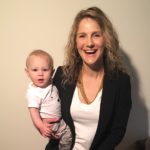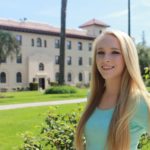Our students are the heart of the Runstad Center. We love seeing our graduates move on to the next chapter of their lives, as well as bringing in the next round of future real estate leaders. Meet three of our students: Scott Rasmussen, a recent graduate of the MSRE program, Brooke Friedlander, a recent graduate of the UW CRE Certificate program, and McKenzie Darr, an incoming MSRE student currently also pursuing a Master of Urban Planning degree.
Scott Rasmussen, MSRE Class of 2016
 Scott Rasmussen didn’t expect to pursue a career in development. Following an interest in start-ups and real estate, he had worked at Zillow for five years before he decided to apply for a Masters of Science in Real Estate at the Runstad Center. A proud Seattle native, having a great real estate Masters program in town made his choice to apply to the Runstad Center MSRE program easier, but he is also a University of Oregon graduate. “I was glad to be accepted, even though I’m a Duck!” he laughs. Scott is now a 2016 MSRE Graduate who is thrilled to have completed the program, especially as he looks forward to what looks like a promising career ahead.
Scott Rasmussen didn’t expect to pursue a career in development. Following an interest in start-ups and real estate, he had worked at Zillow for five years before he decided to apply for a Masters of Science in Real Estate at the Runstad Center. A proud Seattle native, having a great real estate Masters program in town made his choice to apply to the Runstad Center MSRE program easier, but he is also a University of Oregon graduate. “I was glad to be accepted, even though I’m a Duck!” he laughs. Scott is now a 2016 MSRE Graduate who is thrilled to have completed the program, especially as he looks forward to what looks like a promising career ahead.
The real challenge, it seems, was when Scott was considering grad school and trying to land informational interviews. It was an eye-opening experience, when Scott officially became an MSRE student, to see the overwhelming support from the industry for the MSRE program. “It was hard to land a meeting when no one knows who you are or where you’re from. I don’t think anyone would look at me or give me opportunities without this program. It was a real catalyst to make a career change. Once I started the program, everyone I wanted to meet with said yes.” As a graduate, Scott is appreciative of the network he’s developed through the Runstad Center. “It was staggering to see the amount of industry support, and all the hiring opportunities that comes out of that.”
Scott began his degree believing that he wanted to land a career in investments or real estate syndication. However, after a class with George Rolfe, Scott’s attention turned towards development. “My favorite classes were any taught by George. Development exposed me to an area I didn’t know about. I really enjoyed the creative aspect of development.” His classes taught him how to run a pro forma and gave him a solid understanding of the financial side of real estate. “Chris Bitters’ class on appraisal fundamentals was incredibly useful. It’s information that eventually becomes second nature to you as you use it every day.” Scott was also exposed to the breadth of the real estate industry, and its numerous players and nuances. This realization hit early on during orientation week, when Scott and his cohort toured Seattle and met with the real estate starts of the Pacific Northwest. “Meeting these players and getting the inside scoop was fun and exciting. Walking through Seattle, I now feel like a participant instead of a member.”
The Runstad Center aims to provide students with balance of classroom theory and practical application. Scott’s experience as a Runstad student reflected this goal, as some of his most memorable highlights came from learning opportunities outside of the classroom. He was able to attend the ULI Annual Meeting, his trip fees entirely provided for by Runstad Center stakeholders. “I think it is rare to have that level of support. It created opportunities for students that might not have otherwise happened. It also allowed us to build our cohort outside of the classroom.” That level of interaction with his cohort was also a favorite part of Scott’s Runstad experience. “For instance, we got to work as one team for the NAIOP competition, outside of the classroom. We worked well together, and winning didn’t hurt either. I have fond memories of that.”
Scott’s outside of the classroom experience also included an internship at Avalon Bay, which has now turned into a full time career. Scott is on Avalon Bay’s development team, working on Esterra Park in Redmond, most notably on a 323-unit apartment near Microsoft. “This industry is so big and it takes a huge amount of collaboration and effort to make a project move ahead. The Runstad Center gave me the ability to have these types of conversations in a knowledgeable way.” Scott is excited by his career with Avalon Bay, and is looking forward to seeing Esterra Park come to fruition.
Congratulations on graduating and landing a great job, Scott!
Brooke Friedlander, UW CRE Certificate program class of 2016

Brooke Friedlander, 2016 graduate of the UW Commercial Real Estate Certificate program (“UW CRE”), was inspired to go into real estate at a young age. “My dad, a builder and excavator, built our home when I was in fifth grade, and I got to help. He would look at properties, see what owners could do, and I loved that puzzle.” In college, Brooke wanted to pursue a career in development, but the UW had not yet established its real estate curriculum. Following her passion for design, Brooke earned a Masters in Architecture instead, believing that it could also lead to development work. She joined architecture firms focused on commercial development, and it was here that she began to work with the numerous other disciplines of real estate. Through her work, Brooke discovered that she particularly enjoyed working with developers, cementing her desire to pursue a career in development.
As the Runstad Center and the Masters in Real Estate program developed over the past few years, Brooke contemplated working towards a second Masters. However, she already had a Masters degree, a solid career with LMN Architects, and she was pregnant with her first child. Pursuing another Masters would have been a significant commitment and investment, but Brooke was determined to find the best option towards advancing her career in the way she wanted to. “Having spoken with a number of people who had taken the UW CRE program, Runstad Graduate program, and those who were part of the industry, I was excited by the growth and expansion of the industry.” Brooke decided to apply for the UW CRE program at the UW, hoping to build her knowledge base and understanding of the commercial real estate industry. Through her experience, she already knew that those who work in Commercial Real Estate came from distinct disciplines. “I wanted to understand the many roles in the industry. UWCRE showed me how many players contribute to any project being successful.
During the three quarter program, Brooke grew her network by getting to know her peers and by meeting different speakers on each night of the program. “UW CRE selected exceptional speakers, as well as really enjoyable classmates. We had a great group of people from various backgrounds in the course. I hope to have the opportunity to work with many of them again.” Brooke sees development as a multi-faceted process, and she was excited to meet people who, like her, enjoyed that level of complexity. With her development project team, Brooke was able to approach a project from a developer role while supporting her team with her background in architecture. This exploration was challenging, but she wanted to learn as much as possible, and her team collectively wanted to demonstrate value in their project. Through solid teamwork, they delivered an impressive presentation of their project: the rehab of an urban infill site in Belltown. All three judges gave her team’s presentation top marks.
Just before fall term started, Brooke became a mom. As public focus turns towards identifying appropriate maternity and paternity leave and support, Brooke was glad to find a supportive cohort at the UW CRE. “Our son was born two weeks before class began, and as a new mom I was uncertain of how I may be perceived. However, a fellow classmate and his wife had their third child in the winter, and another found out she was pregnant with their second in spring term. It was great to see careers and families advancing on both sides because of supportive partners.” In addition taking the certificate program and transitioning into motherhood, Brooke also secured a new job as Entitlement Manager at Isola Homes, where she works with a broad range of industry professionals from feasibility through entitlement. She is thrilled that her career is moving in the direction that she had hoped for, and relishes the new challenges she encounters every day.
In reflecting on the past year and the numerous life changes she encountered, Brooke’s upbeat and optimistic enthusiasm shines through. “The UW CRE program allows those who may otherwise not be able to enter the industry to gain incredible exposure and knowledge – and possibly a career change. The industry is expanding and becoming more inclusive, and I applaud UW CRE for widening the opening for diversity.”
McKenzie Darr, MSRE/MUP Candidate 2017

Originally from Santa Clara, California, McKenzie Darr barely has time between school, research, and work to explore a new city. It is important to her, however, that she get to know Seattle as quickly as possible. After all, while exploring grad school options, McKenzie’s decision was heavily tied to the choice of city. “I wanted to be in a more innovative and progressive city that is actively working on projects. I could move to a city that is just starting to think about big issues like transportation, for example, or I could move to Seattle where plans are already in place and moving forward. That’s exciting to me.” McKenzie has just completed her first year of her Masters in Urban Planning, but that’s not nearly enough for this ambitious, future industry leader. In Fall 2016, McKenzie is looking forward to starting her second year as an Urban Planning student, in addition to pursing her Masters in Real Estate as a first year student.
McKenzie’s passion for urban planning and real estate was largely born out of a job at the City of Santa Clara’s Planning & Inspection Department in the Building Inspection Division where she worked with a broad spectrum of real estate professionals on their development projects, the permitting process and building inspection. Through this position, McKenzie observed a disconnect between developers’ goals and public processes. She had recognized similar issues while on philanthropic trips to India, where government development plans did not appropriately address the needs of the general population. These experiences all led to a personal focus on urban planning as a bigger vision and a desire to understand what developers and community want. Upon coming to Seattle, McKenzie participated in the Runstad Center’s orientation week, where she began meeting with local industry leaders and learning more about the Seattle market. This orientation week provided a glimpse into the practical application of real estate and urban planning issues, which bolstered her desire to pursue both Urban Planning and Real Estate Degrees. “Planning is theoretical and worth understanding, but it’s not the full picture, and that’s where real estate comes in. If I understand both the public and the private sides, I can be a more effective player.”
McKenzie’s first year as an Urban Planning student was challenging but immensely rewarding. As a newcomer to Seattle, McKenzie felt the need to catch up to her peers who grew up in Seattle and already knew the market. “Luckily, Seattle is changing so quickly that we all need to work to stay up to date. I’m just trying to be a sponge and learn as much as I can. It’s been fascinating!” In her first year, McKenzie has participated in numerous property tours, all of which have helped her and her cohort stay ahead of the learning curve.
McKenzie’s focus during her first year was not only at a local level, however. She conducted research under Himanshu Grover at the Institute for Hazards Mitigation Research and Planning, studying the aftermath of the April 2015 Nepal earthquake. McKenzie scoured over 800 articles from local Nepalese sources documenting community conversations and observations of relief support. “I enjoyed it because we recognized a perspective that is not often taken. We run into this in planning frequently: how do you effectively do community outreach? How do you make that voice heard when there are so many barriers to access? I learned so much from this research project, including what goes into academic research (which is good prep for my upcoming thesis). Research also gave me a way to be involved.”
This summer, McKenzie will be returning to Santa Clara’s Building Inspection Division as a summer planning intern. She would have loved to stay in Seattle for the summer, as she is quickly becoming a caffeine aficionado and enjoys sunny days at local Seattle parks, but felt she would be the most effective in Santa Clara. “Summer internships are hard because you need to spend time getting to know a new organization and it’s over before you know it. At Santa Clara, I know the system and I can get started right away, this time with a better sense for urban planning.”
McKenzie is looking forward to her second year at the UW, and she is excited to shift her focus from planning to real estate. “I’m looking forward to seeing how they come together, and I would love to see more integration between the two disciplines. I’m excited to gain more knowledge and context, and I’m excited to have another cohort to work with.”

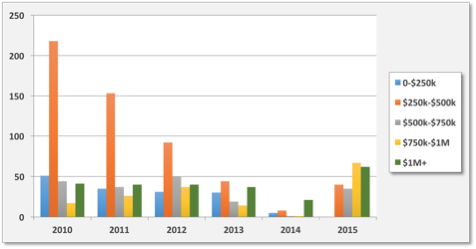
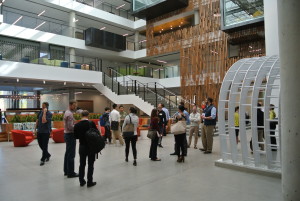
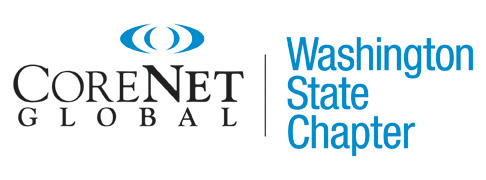
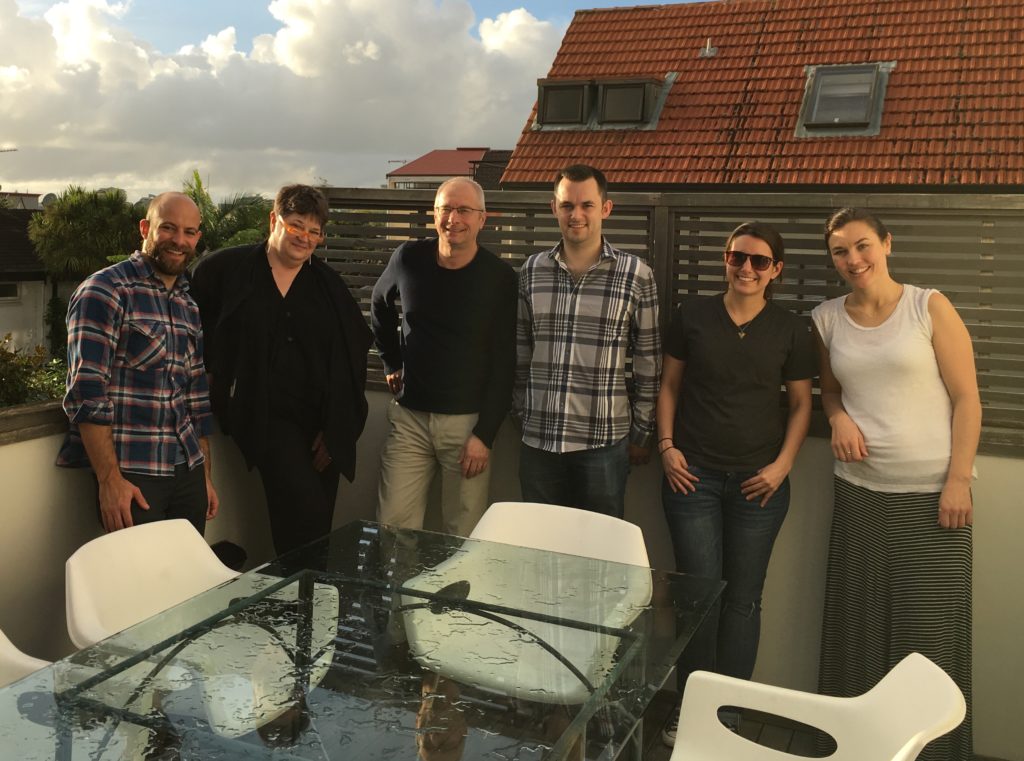
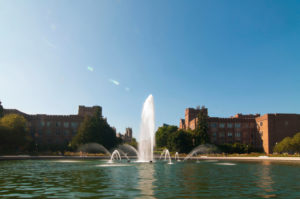
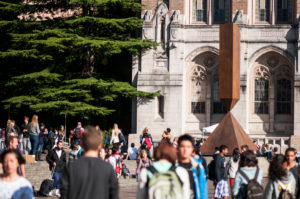
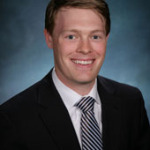 Scott Rasmussen didn’t expect to pursue a career in development. Following an interest in start-ups and real estate, he had worked at Zillow for five years before he decided to apply for a Masters of Science in Real Estate at the Runstad Center. A proud Seattle native, having a great real estate Masters program in town made his choice to apply to the Runstad Center MSRE program easier, but he is also a University of Oregon graduate. “I was glad to be accepted, even though I’m a Duck!” he laughs. Scott is now a 2016 MSRE Graduate who is thrilled to have completed the program, especially as he looks forward to what looks like a promising career ahead.
Scott Rasmussen didn’t expect to pursue a career in development. Following an interest in start-ups and real estate, he had worked at Zillow for five years before he decided to apply for a Masters of Science in Real Estate at the Runstad Center. A proud Seattle native, having a great real estate Masters program in town made his choice to apply to the Runstad Center MSRE program easier, but he is also a University of Oregon graduate. “I was glad to be accepted, even though I’m a Duck!” he laughs. Scott is now a 2016 MSRE Graduate who is thrilled to have completed the program, especially as he looks forward to what looks like a promising career ahead.